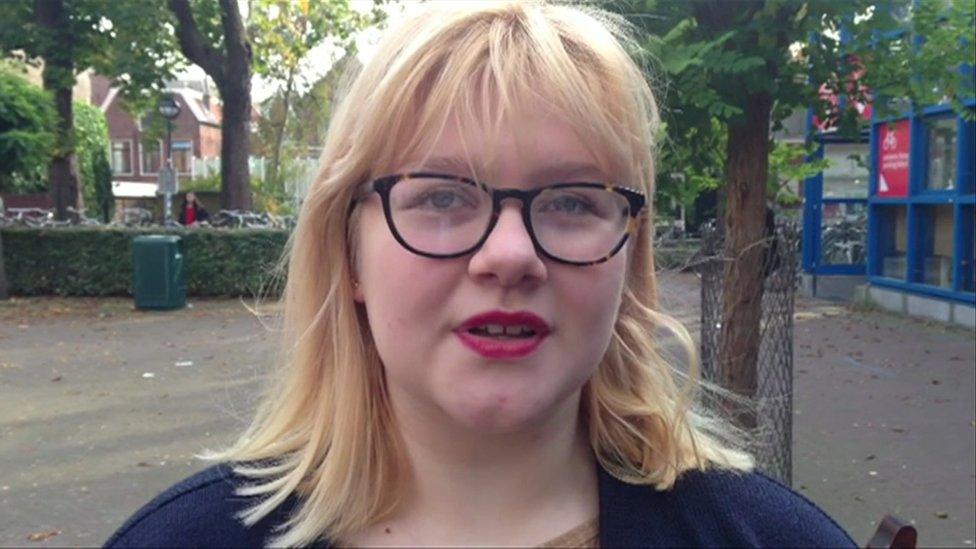UK student numbers surge in Netherlands
- Published
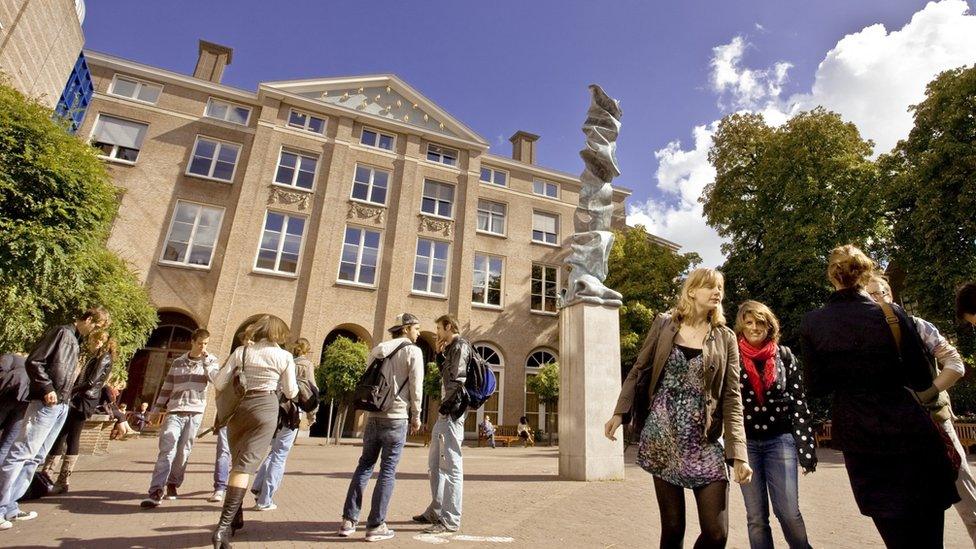
Groningen has attracted a third more students from the UK this autumn
The historic city of Groningen has got all the things you'd expect from somewhere picturesque and Dutch - canals, bridges and bikes.
If there is any graffiti, it's almost certainly going to be in perfectly punctuated English.
But what it also has is hundreds of students from the UK - and the number is rising.
This is the university application season for UK students - and open day visits now include trips to Dutch universities, which are pitching themselves as if they were offshore Russell Group institutions.
Since tuition fees rose to £9,000 in England there have been repeated forecasts that students would head for cheaper European universities.
Now it seems to be actually happening.
Phoebe Watkinson is considering applying to university in the Netherlands
Across the Netherlands, there are 2,600 UK students in universities this term - up by a third in a year. And independent school head teachers want Dutch universities to be included in the Ucas application form.
The University of Groningen is a microcosm of this - up by 33% to around 300 UK students, for whom it has had to put on special open days.
This 400 year-old university, second oldest in the Netherlands and in the top 100 of international rankings, now designates itself as an English-speaking institution.
It is running more degree courses taught in English than in Dutch, with students from Germany, China, the UK and the Netherlands itself, all learning in English.
Fee refugees
For families from England attending the open day in Groningen, the question of tuition fees is never far from the surface.
Phoebe Watkinson and her father Phil had travelled from Wirral.
Phoebe said that as well as being less expensive, going to a European university would give her an "edge" in the jobs market.
"It shows a certain quality, it shows bravery to go to another country and it's not that far from home," she said.
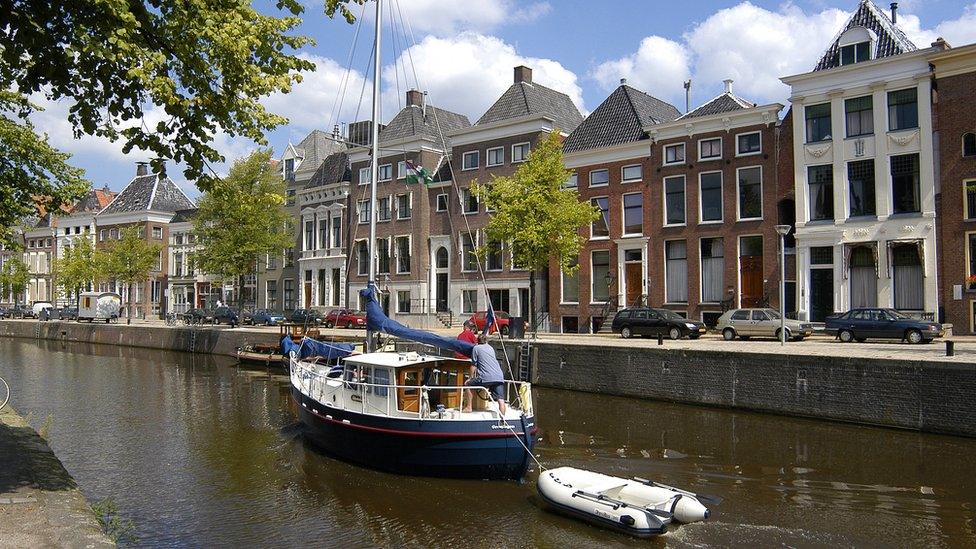
Universities in the Netherlands can charge about £1,400 in tuition fees
The distance does not seem daunting, she says, as it is as quick to get home from the Netherlands as from some other parts of the UK.
Her father says he is from a generation when higher education was free - and he finds it "difficult to fathom" the level of debt being piled up.
"I would be extremely pleased if she came here," said Mr Watkinson. He says it would benefit her academically and socially as well as financially.
"If you ask most people what their primary driver was for looking at foreign universities, probably most of them would say straight off 'lower fees'," he says.
"But I think there's a lot more to it than that. If people look further than just the cost and see the other advantages, a lot more people will start to look at it seriously."
Away from home
Saskia Dutton from Sheffield said her concern about studying at home is that she might "end up with £40,000 of debt" for a university in England, regardless of its quality.
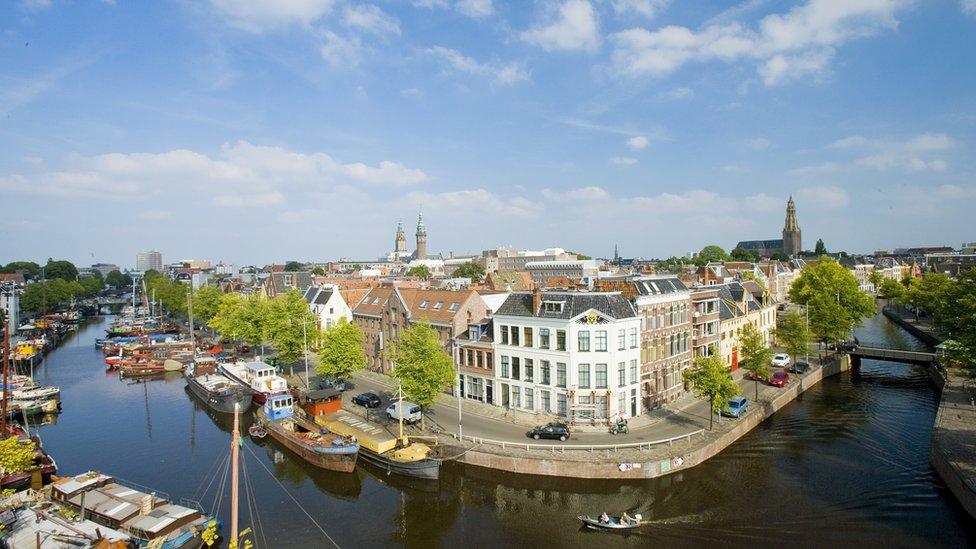
Groningen
"I thought do I want to settle for paying £9,000 to go to a university that is not going to give me the same quality of education as somewhere that costs 2,000 euros (£1,400)?
"The hesitation would be that I would be far away from my family... University can be quite a lonely experience," she said.

More stories from the BBC's Knowledge economy series, external looking at education from a global perspective and how to get in touch

Nick Verspeak from Wiltshire says the attraction is learning in an international environment, as a step towards working in a globalised jobs market.
But what's it like to be an English student at Groningen?
Facetiming home
Gemma Scott from Newcastle says the initial draw was the cost, but it's been a different experience than she expected.
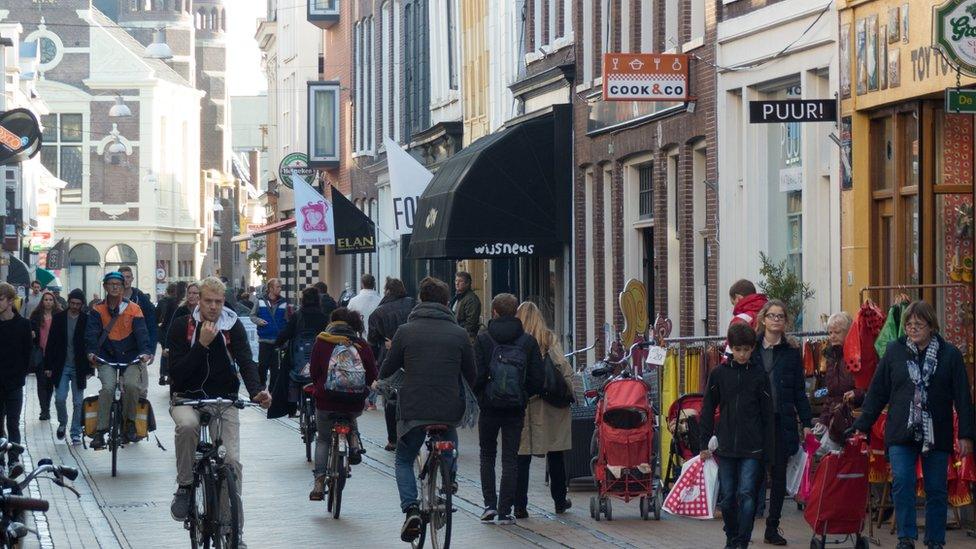
Students from England pay lower tuition fees but do not get support for accommodation
"It's made me a different person, made me much more confident in my own abilities, because I moved country when I was 18," she says.
She adds that her friends leaving universities in England will face immediate pressure to find work and begin paying off debts, while she will leave debt-free.
"I think I'm the only student to come out with savings."
Gemma is studying English literature, in a Dutch English-speaking university, and admits to having learnt almost no Dutch while studying there.
She says that the distance from family is a real factor - "you can't just hop on a train". But she says social media and video links like Facetime can fill the gap.
"I'm physically separated, but I talk to my mum every day and I say good night to my sister."
Accommodation costs
Holly Jane Shaddock from Shrewsbury, who is studying languages, says she is "embarrassed" telling other European students how much fees cost in England.
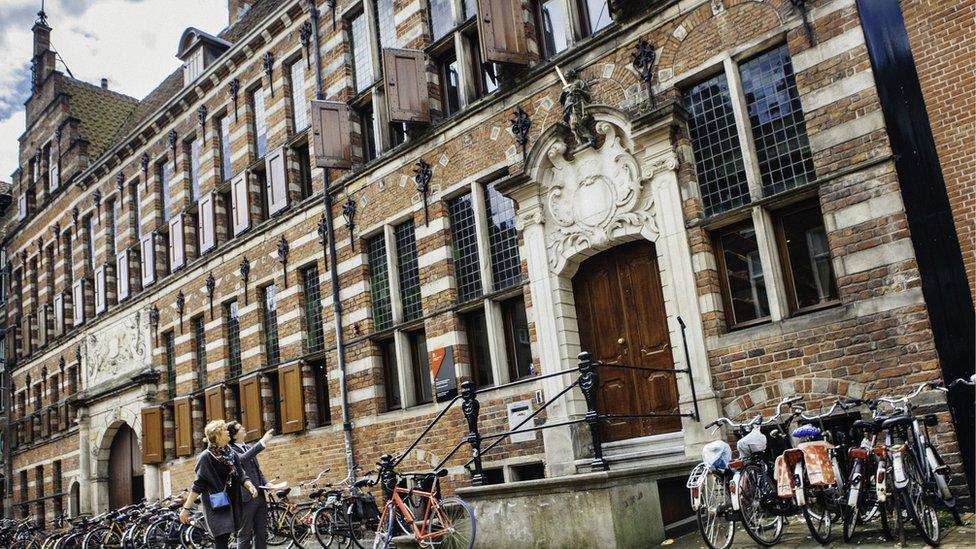
Groningen, the second-oldest university in the Netherlands, now teaches most courses in English
"They find it incredible, they are shocked. It's similar to my reaction when my American friends tell me how much their tuition costs. It's the same: 'How can you pay that much?' But you realise people don't have a choice."
But she says even though the fees are lower: "Financially it can still be a bit of a struggle."
It's a misunderstanding to think that studying in the Netherlands is free.
There are tuition fees of 2,000 euros (around £1,400) per year and students from the UK can apply for support for this.
But they cannot get financial support for living costs, so parents will have to pay for accommodation or students need to get part-time jobs.
The typical room cost is about 360 euro (£254) per month, says the university.
English language
But why would Dutch universities want to attract so many more UK students?
Groningen's rector, Elmer Sterken, says being an international institution improves the quality of teaching and research.
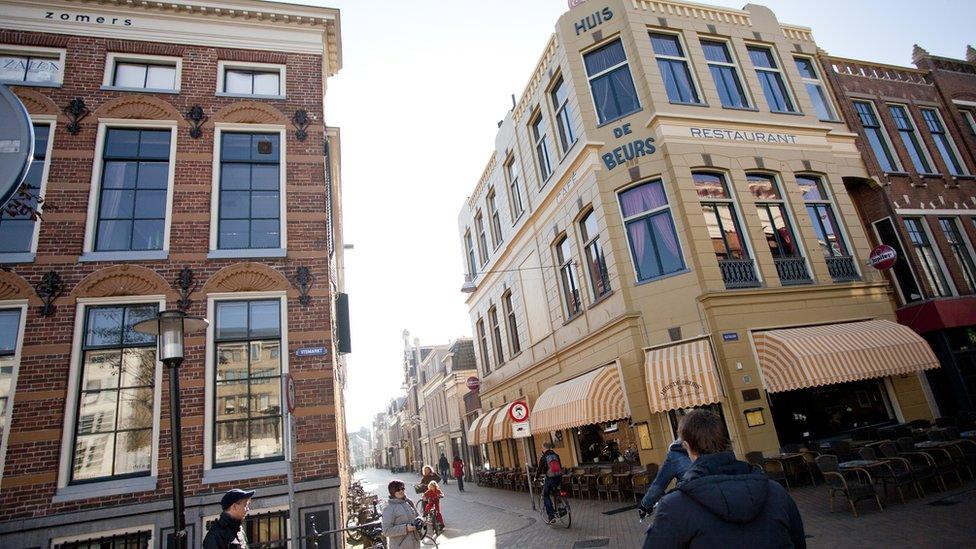
Students are now signing up for full degrees in Europe, rather than a "year abroad"
But there's also a practical motivation.
"The number of Dutch students will drop, so we're interested in attracting more international students," he says.
Adopting English as the first language - apart from subjects such as Dutch literature or Dutch law - is now accepted, says the rector, after "some resistance at the beginning from some of the staff".
"The lingua franca of universities and research is English and maybe 90% of Dutch people speak English to some extent," he says.
So is studying abroad going to become more mainstream?
Chris King, chairman of the Headmasters and Headmistresses Conference, in a report from Maastricht University, said the big change was that it was no longer just about a year abroad.
"Heads are emphasising to more students the benefit of enrolling for a complete degree programme abroad," he said.
The government has signalled that fees are going to rise again above £9,000. An unintended consequence could be rising numbers of English students cycling around Dutch cities.
- Published3 December 2015
